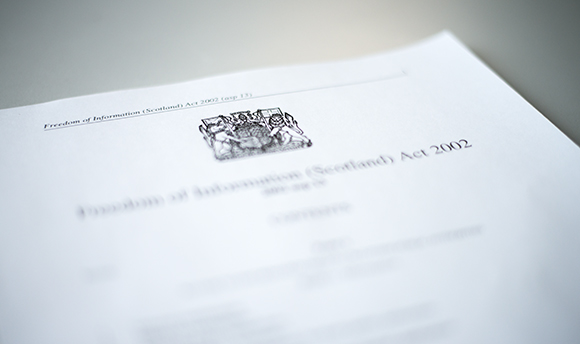Boards of examiners
1 Purpose and function
1.1 A Board of Examiners shall be appointed by Senate for each programme leading to an award of the University or for each level of a programme.
1.2 The Board of Examiners for a particular programme is responsible to the Senate for making:
- an assessment of each student on each module assessed
- an overall assessment of each student's performance and a decision on progression at each intermediate stage of the programme
- a decision on the award to be conferred on each student on completion of, or decision to exit from, the programme
1.3 These decisions are made by the full Board of Examiners in the light of the standards of student achievement appropriate to the particular level of the programme and to the award to which the programme is designed to lead, the aims of the programme, the performance on the programme in previous years, the University's general assessment regulations, the specific programme regulations, and good practice established in the University and elsewhere.
4.0 The decision by the Board of Examiners is a corporate decision made by the full Board. The Internal Examiner(s) for a particular module is only one member of a full Board making a decision on student performance on that module.
5.0 Such decisions are ratified by the Senate, or they may be referred back to the Board of Examiners for further consideration and explanation. The more detailed procedures for such referrals are set out in paragraphs 1.6 – 1.8 below.
6.0 Decisions by the Board of Examiners that fall outside programme regulations but which are within the University general assessment regulations shall be fully documented in the minutes of the Board of Examiners. Any proposals regarding changes to regulations arising from these decisions shall be referred to the Student Experience Committee and to Senate for ratification.
7.0 Students shall be formally notified of decisions affecting them after the Senate has ratified these decisions. In any prior communication of results to students it shall be clearly indicated that they are subject to such formal ratification.
8.0 Any significant disagreement within the Boards of Examiners, or cases where the External Examiners are not in agreement with the Board's overall decision shall be referred explicitly and timeously to the Senate.
2 Membership
2.1 The composition of a Board of Examiners shall be as follows:
Convener:
Head of Division/Dean of School in which the programme is based (unless the Head of Division is also programme leader). Alternative arrangements need the approval of the Dean of School.
Internal Examiners:
All members of staff with assigned responsibility for the assessment of those components of the programme on which the Board of Examiners is taking decisions. However this may not include all staff teaching on the programme.
External Examiner(s)
External Examiners appointed by Senate.
Programme/Subject Leader, Year/Level Tutors, Co-optee(s):
At the discretion of the Convener of the Board of Examiners (These may include other members of staff such as examination officers).
Secretary:
Appointed by the University Secretary
2.2 The Internal Examiners of each Board of Examiners shall be specified by the Convener of the Board concerned.
2.3 External Examiner(s) shall be appointed by the Senate for each programme leading to an award of the University. The regulations relating to External Examiners are detailed on the University’s Quality website.
2.4 All staff with assigned responsibility for the assessment of a programme as specified by the Convener in 2.2 above, shall attend the Board of Examiners as Internal Examiners. Any Internal Examiner unable to attend shall consult the Convener who will normally require the submission of a written report to the Board of Examiners on the general standard of the class, and giving recommendations on such matters as the methods of re-assessment. The Convener alternatively may appoint a replacement Internal Examiner.
2.5 Where appointed, External Examiners shall have full membership of the Board of Examiners that is authorised to recommend the award for that programme. External Examiners are required to attend Board of Examiners meetings at which final awards are determined. The attendance of External Examiners is not specifically required at reassessment Boards of Examiners.
2.6 All student work contributing to the student’s final award must normally be moderated by the relevant External Examiner(s) prior to the meeting of the Board of Examiners. External Examiners will normally be required to moderate samples for an individual module once per academic year. They will not normally be required to moderate samples for reassessments or multiple occurrences of the module provided the mode of assessment and marking team remain unchanged from the original assessment. The Board of Examiners will determine whether the External Examiner will be required to moderate additional samples for reassessment or an additional occurrence of the module.
2.7 For those Boards of Examiners at which External Examiners are required, agreement of all External Examiners is required to ratify the decision of the Board. In the case of award recommendations to be made by Convener's action, the criteria for the proposed award(s) should be determined at the appropriate Board of Examiners.
2.8 Where an External Examiner is unable to attend a main Board of Examiners due to unforeseen circumstances, and where no other External Examiner is present at the meeting, written confirmation of their agreement with the marks and the progression/award recommendations must be sought. Written confirmation of decisions will be not be released to students until the full agreement of the External Examiner(s) has been received. Secretaries to Boards of Examiners must ensure that the written comments of External Examiner(s) who are unable to be present, are detailed in the minutes of the Board of Examiners.
2.9 A Board of Examiners shall be quorate if, in addition to the conditions set out in paragraph 2.5 above for External Examiners, sufficient Internal Examiners are present to represent 75% of the subject matter of the level being considered. This is a minimum and not the expected level of attendance. Three is the minimum number of Internal Examiners on any Board, in which case the quorum is two.
2.10 Where a Board of Examiners is found not to be quorate, the Convener may decide to proceed subject to the approval of all members present. The minutes of such Boards of Examiners must be circulated and approved by all absent members of the Board, including the External Examiners.
2.11 Boards of Examiners may require students to take re-assessment. In such cases the full Board of Examiners shall at the meeting where it decides to offer a re-assessment, determine:
- the students to be offered re-assessment, and in which modules
- the nature of the re-assessment for each student
- the consequences to be attached to the re-assessment results
- the membership of the re-assessment meeting of the Boards of Examiners,
- the means whereby the views of the External Examiner are to be obtained if required.
2.12 The membership of the re-assessment meeting of the Board of Examiners shall include the Convener and all Internal Examiners responsible for the assessment of the modules involved in the re-assessments, or such alternative membership as the Board of Examiners at its main meeting shall determine. Regulations on quoracy remain the same as in 2.9 above.
2.13 Programme Committees, Subject Area Panels and Boards of Study are distinct from, and have separate functions to that of, the Board of Examiners. The Board of Examiners may convey comments relevant to the operation of the programme to the Programme Committee and/or Subject Area Panel and/or Board of Study as appropriate.
3 Operation of Boards of Examiners
3.1 The Board of Examiners may meet in person or online. Arrangements for Boards of Examiners will be confirmed with the Convener in advance of the start of the academic year and members will be advised whether meetings will be held in person or online.
3.2 Only electronic versions of student profiles will be provided and these will be shared with members during the meeting of the Board of Examiners. These profiles will be annotated with progression or award decisions and will be taken as the formal record of decisions. Progression decisions will note eligibility for any subsidiary award where appropriate. Pass lists will not be produced.
3.4 The focus of the Board of Examiners will be on the students (as individuals and as a cohort), the module and the programme. In making decisions on assessment and progression, the Board of Examiners should take account of:
- the performance of each individual student on a module by module basis leading to recommendations as laid down in the definitive document concerning progression, re-assessment, withdrawal or final award;
- the grades achieved in the current academic year in comparison with previous years;
- the distribution of grades and outcomes in similar programmes in other departments and other institutions;
- reports from staff on any special circumstances affecting student performance;
- whether every marginal or fail case has been given full consideration for every possible alternative programme of action open to the Board according to the programme and/or University regulations;
- any scaling that has been applied to the marks or gradings for an individual, or a module, either by the examiner or the Board of Examiners;
- any deviation from the programme regulations and/or the University general assessment regulations by the Board of Examiners, leading to a change in progression status or final classification (note: all deviations from the University's general assessment regulations should be fully documented in the minutes of the Board of Examiners and any proposed changes to the regulations arising out of these decisions, should be referred to the Student Experience Committee);
- any comments the Board may wish specifically to make either to the Programme Committee/Subject Area Panel/Board of Study, to the appropriate School Academic Board or to the Senate
3.5 The Board should have access to such information as is necessary to make these judgements.
3.6 Decisions on extenuating circumstances for individual students should be approved in advance of the Board of Examiners in line with University guidelines. Details of individual cases should not be discussed at the meeting of the Board of Examiners.
3.7 All cases of suspected academic misconduct (including plagiarism) should be investigated by the Programme Leader and the Dean of School in line with the University’s general assessment regulations on academic misconduct and the University Code of Discipline. Investigations should be made in advance of the Board of Examiners and certainly no later than 7 days following the meeting of the Board of Examiners. Where an allegation has been upheld, a summary of action taken should be recorded in the Board of Examiners minutes and on the electronic student record for future reference.
3.8 To ensure that the Board of Examiners considers all relevant issues a model agenda identifies good practice.
3.9 The provisions of the regulations may not be varied without the explicit agreement of the University Secretary.
Model agenda
School of Arts, Social Sciences and Management
BEaM Undergraduate Board of Examiners
Date:
Time:
Venue: online - Blackboard Collaborate
CONVENER:
SECRETARY:
If you are unable to attend this meeting, please e-mail academicadministration@qmu.ac.uk
Agenda
Business surrounding conduct of the Board
1.0 Welcome and Apologies
2.0 Confirmation that Meeting is Quorate
3.0 Determination of Any Other Business
4.0 Minutes of Previous Meeting
4.1 Minutes of the meeting of 18th August 2022
5 Matters Arising
Consideration of student-related business
Items 6, 7, 8, 9 and 10 can be considered concurrently
6.0 Consideration of Modules
6.1 Module Summary Statistics
6.2 Confirmation of External Examiner Moderation
7.0 Notification of student status
7.1 Withdrawals
7.2 Deferrals
7.3 Extenuating Circumstances
8.0 Presentation of Marks & Decisions on Progress
9.0 Arrangements for Reassessment
9.1 Timing
9.2 External Examiner Moderation Arrangements
10.0 Recommendations to Senate for Award
10.1 Non-Modular Requirements for Award
11.0 Prizes & Awards
12.0 External Examiners Comments
13.0 Internal Examiners Comments
14.0 Any Other Business
14.1 Date of Release of Student Transcripts/Results
14.2 Embargo on Results
15.0 Date of Next Meeting
Last updated August 2023


